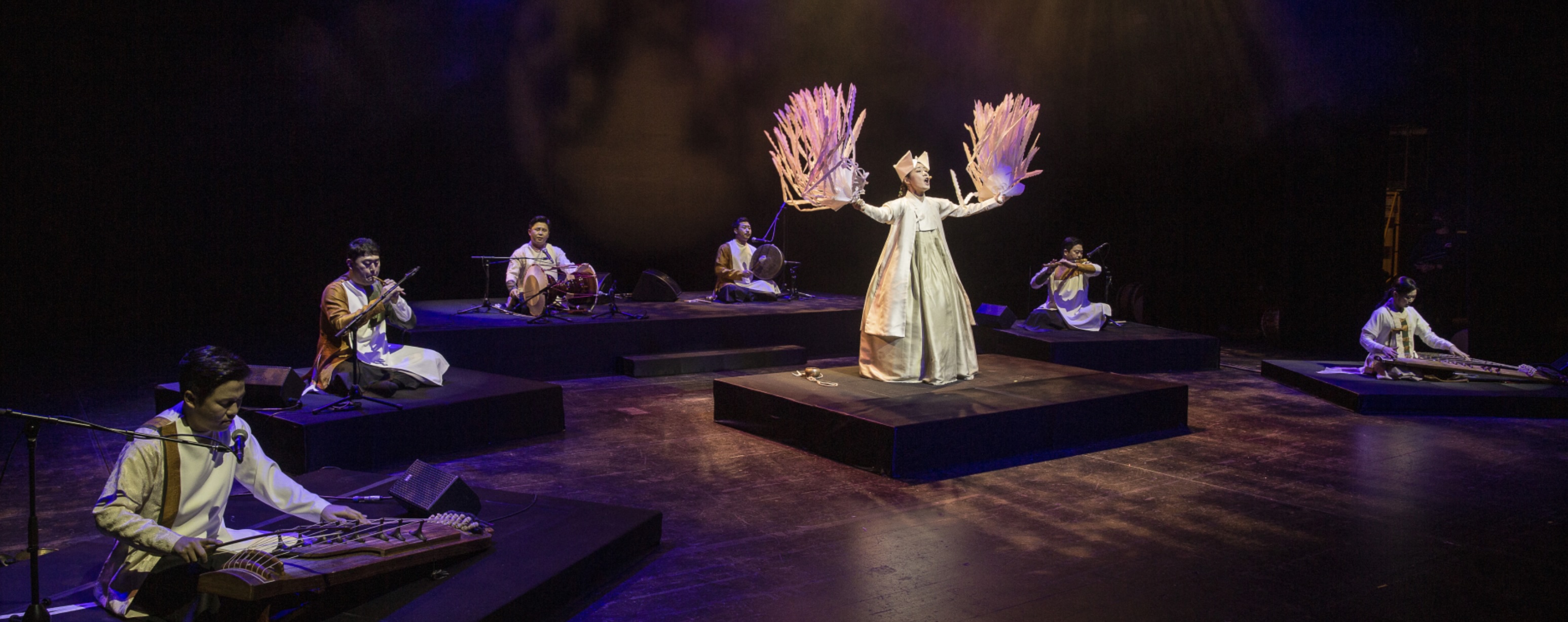Performances

For a long time in Korea, music and ritual have been used to drive away evil spirits. Those who performed these rites—briefly introduced in the opening of K-Pop Demon Hunters—were called mudang (무당), or shamans. The ritual known as gut (굿), in which shamans expel malevolent spirits and pray for blessings, has continued into the present day. The music of these rituals has become an important root of Korean traditional music.
To provide an opportunity to experience Korean traditional music, we have invited one of its most renowned and popular ensembles, BARAJI (우리소리 바라지).
Baraji (바라지) is a native Korean word that refers to the heartfelt care given to a person through unconditional support. In Korean traditional music, baraji refers to the impromptu singing by accompanists that adds harmony to the lead vocal and enhances colors of the music. The character of baraji is epitomized in Jindo Ssitgim Gut, creating a unique style. Ssitgim Gut is a traditional shamanistic purging ritual for the dead, a prayer for peaceful rest with singing and dancing.
THE BARAJI music group was born to pay homage to baraji and to share the beauty of baraji with the world through baraji-style music. THE BARAJI strives to identify impacting elements for interaction with contemporary audiences that exist in various genres of traditional music including vocal, percussion, instrumental and theatrical music. By polishing and reconstructing these elements, THE BARAJI sincerely hopes to contribute to making the world a better place to live in through its musical activities.
At this ISMIR concert, BARAJI will present a diverse program, ranging from traditional solo performances (Sanjo and Pansori) to their original ensemble piece inspired by Korean shamanistic music (Muak; 巫樂). In this 70-minute performance, BARAJI will present inspiring music and offer prayers for the happiness and well-being of all participants.
- Song of Prayer (비손)
- Gayageum Sanjo (가야금 산조)
- Blind Sim opening his eyes, from pansori Simcheong-ga (판소리 심청가 중 심봉사 눈뜨는 대목)
- Daegeum Sanjo (대금 산조)
- Spirit Ensemble (씻김시나위)
- Blow & Hit (무취타)
- Prayer of Blessing (별신축원)